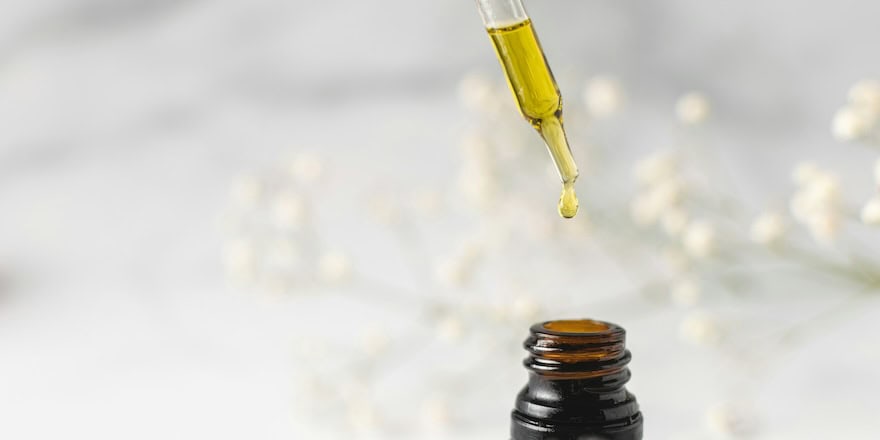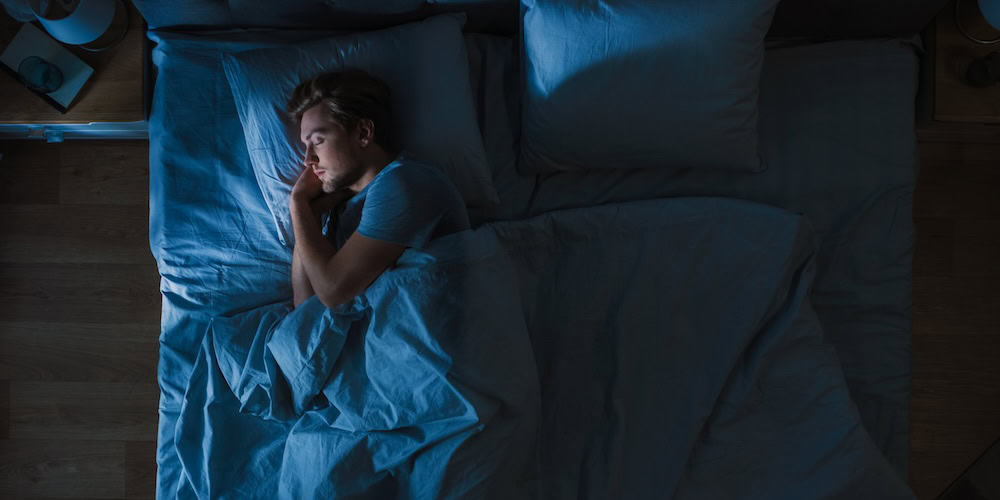CBD, or cannabidiol, is part of the cannabinoid family, those natural compounds found in the cannabis or hemp plant. It is often mistakenly confused with THC (tetrahydrocannabinol), another popular molecule found in cannabis.
Unlike THC, CBD does not exhibit any of the psychoactive effects responsible for the euphoric and addictive action of cannabis consumption.
Although tainted by the reputation of cannabis, CBD is available over the counter. It is recommended for treating issues like anxiety, pain, or sleep disturbances.
It is available in forms such as infusions, oils, dried plants, powders, capsules, and even topical creams.
If its use has become popular in recent years, what about its effectiveness on sleep? I’ll answer the questions you’re asking by deciphering the latest scientific studies on the subject.
📚 Also read | The best CBD oils on the market according to a specialist
How does CBD act on sleep?
The endocannabinoid system
CBD is often used for its presumed ability to promote falling asleep.
More precisely, it would act on two levels: the endocannabinoid system (ECS) and on neurotransmitters directly involved in sleep.
The body has an endocannabinoid system, composed of receptors and chemical molecules. They contribute to the body’s balance in terms of mood, stress, pain, etc.
Some research has shown that CBD increases concentrations of the major cannabinoid molecule, Anandamide (AEA). And inhibits the enzyme that degrades it, FAAH (Fatty Acid Amide Hydrolase).
AEA, which binds to CB1 receptors, influences mood and the feeling of well-being. It is also thought to have an effect on sleep cycles by inducing relaxation.
The sleep neurotransmitters
That’s not all, as CBD is also thought to have an indirect effect on neurotransmitters outside of the endocannabinoid system, involved in regulating sleep.
It would notably bind to 5-HT1A serotoninergic receptors.
As a result? It promotes the increased release of serotonin, often called the happiness hormone. It is also involved in falling asleep and maintaining good sleep quality.
According to this study, it also improves GABA activity, an inhibitory neurotransmitter in the body, which aims to reduce neuronal excitability and promote calmness and relaxation.
What does science say about CBD’s beneficial effects on sleep?
A lack of research
There are studies on the beneficial effects of CBD on sleep. But the established evidence remains thin, due to insufficient research conducted.
The benefits of CBD on falling asleep are often noted secondarily during scientific research.
It seems essential to conduct new, larger-scale research. Longer, with a broader sample, in order to get new answers on the question of the benefits of this molecule.
Promising results
However, the team of Shannon et al. demonstrated two promising results in 2016 and 2019.
This case study showed that taking 25 mg of CBD per day improves the sleep of a young child suffering from post-traumatic stress.
In a larger sample of 72 psychiatric patients, taking 25 mg/day of CBD orally improved sleep scores in the first month for 66.7% of them (or 48 patients).
Other studies, however, are more moderate about the effects of CBD in healthy people.

How to consume CBD for better sleep?
The absorption speed of CBD and the duration of its effects vary depending on the form used.
For quick action just before bedtime, I recommend:
- vaporization of CBD leaves
- sublingual oil
- herbal teas
Otherwise, you can opt for slow-absorbing forms like gummies or capsules, which have more lasting effects, which may be suitable for people experiencing nighttime awakenings.
In any case, CBD is not a medication and is not intended to replace a treatment. Before incorporating this type of product into your daily life, consult your doctor to avoid any drug interactions or adverse effects.
Sources and scientific studies
- A narrative review of molecular mechanism and therapeutic effect of cannabidiol (CBD), Jiangling Peng et Al, 2022
- The direct actions of cannabidiol and 2-arachidonoyl glycerol at GABAA receptors, T. Bakas et Al, 2017
- Shannon S et Al, Effectiveness of Cannabidiol Oil for Pediatric Anxiety and Insomnia as Part of Posttraumatic Stress Disorder: A Case Report, 2016
- Shannon S et Al, Cannabidiol in Anxiety and Sleep: A Large Case Series, 2019
- Linares IMP et Al, No Acute Effects of Cannabidiol on the Sleep-Wake Cycle of Healthy Subjects: A Randomized, Double-Blind, Placebo-Controlled, Crossover Study, 2018



